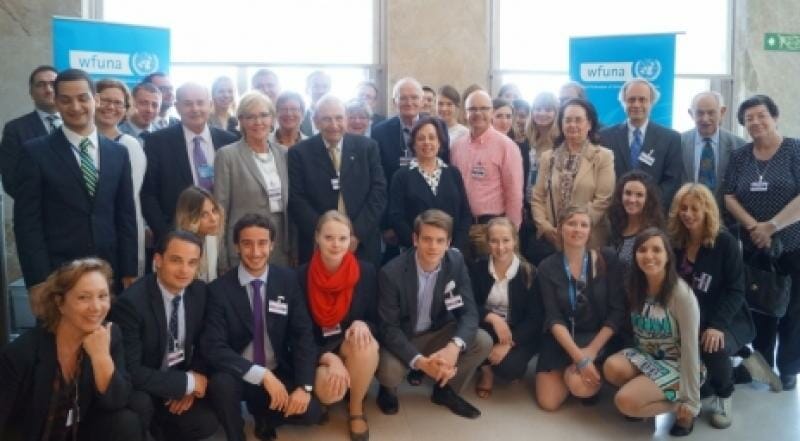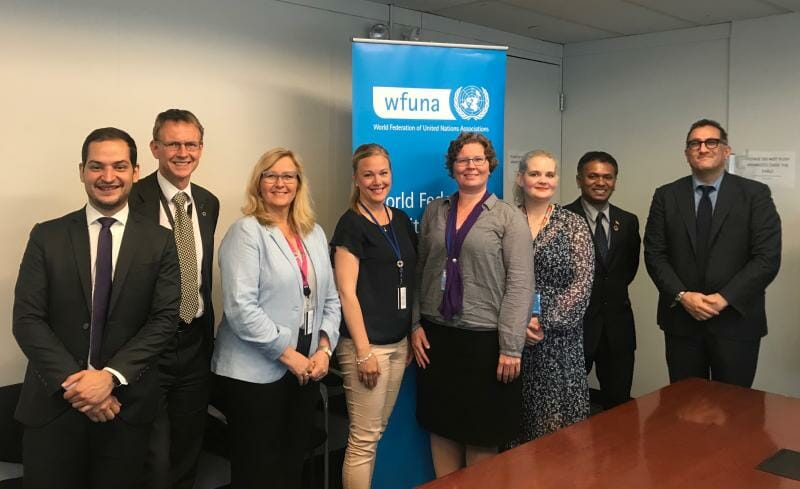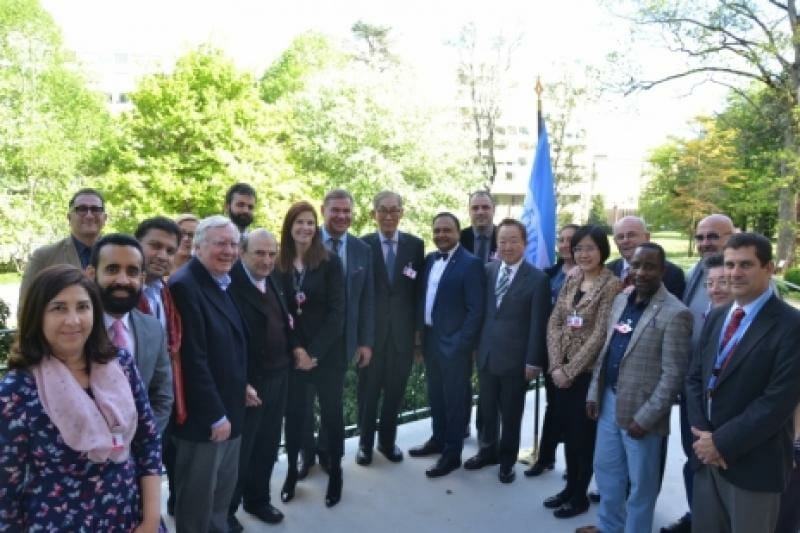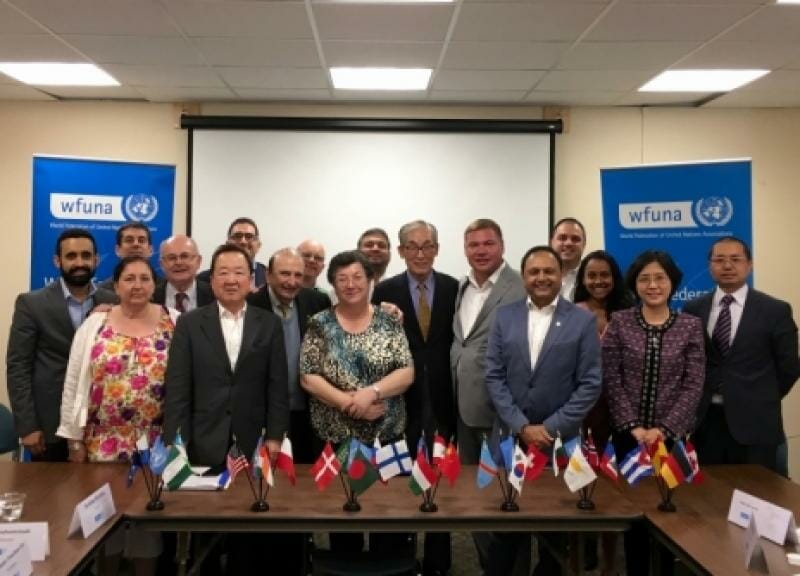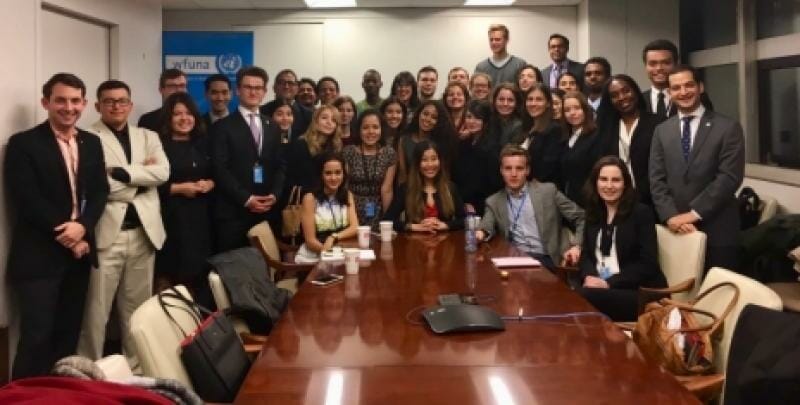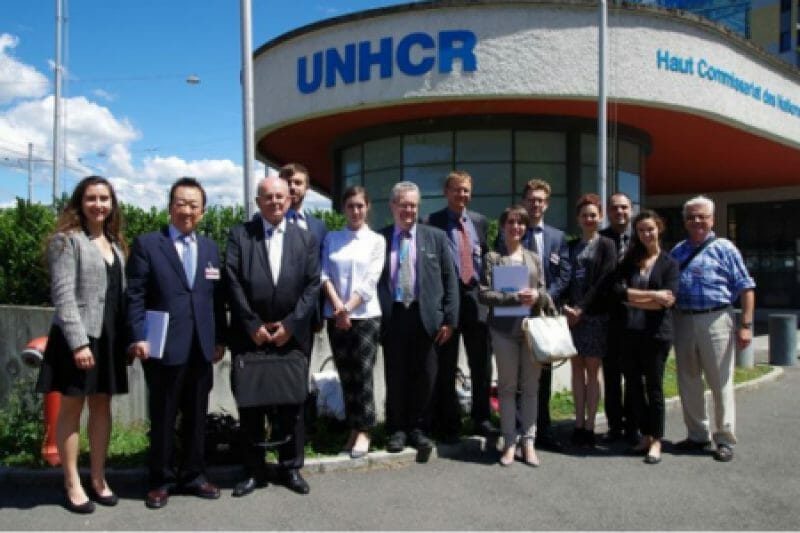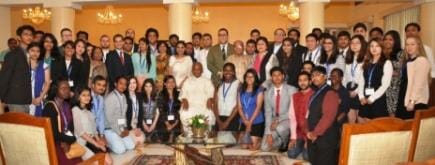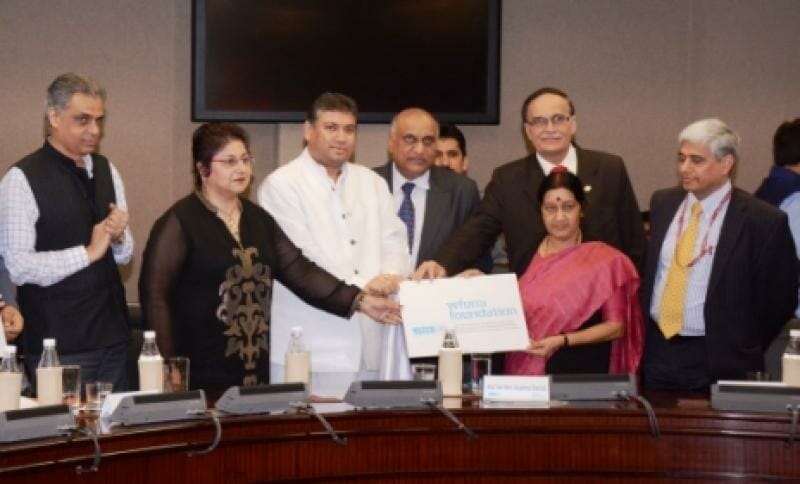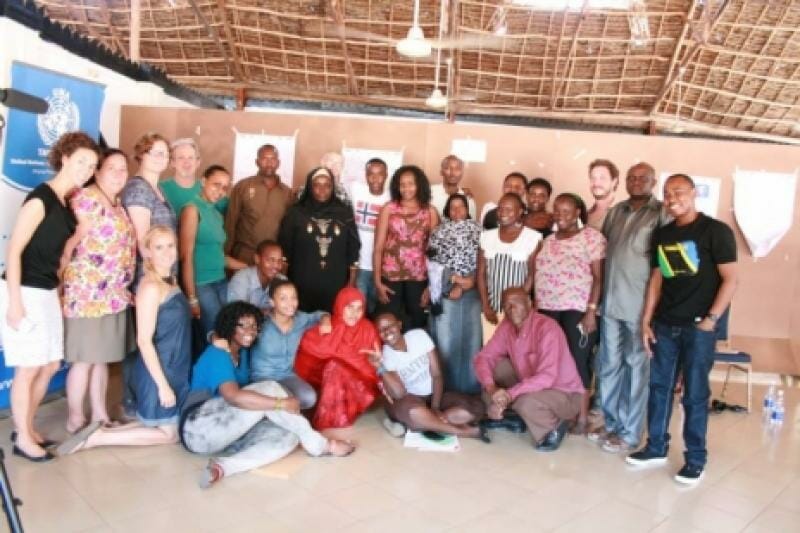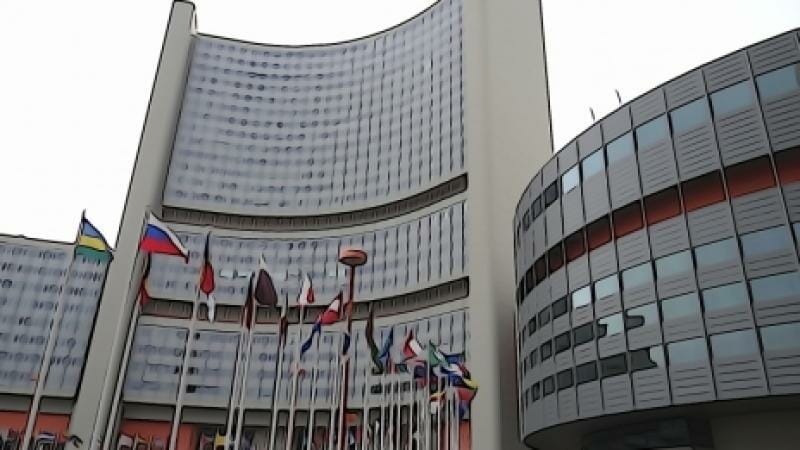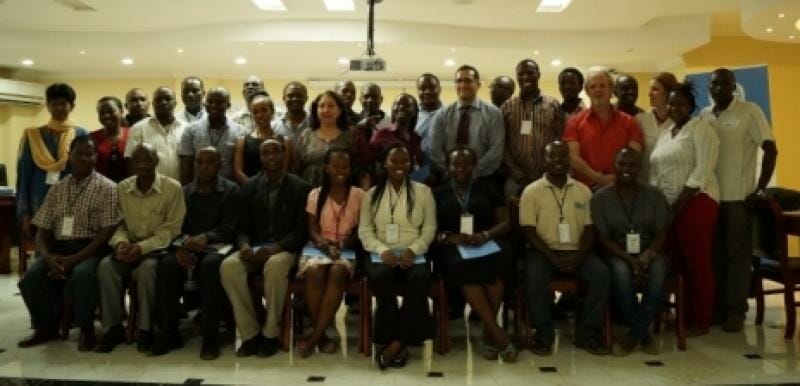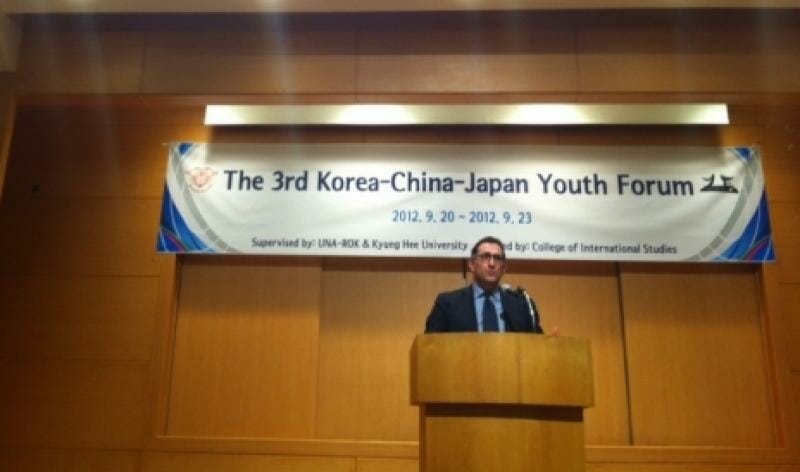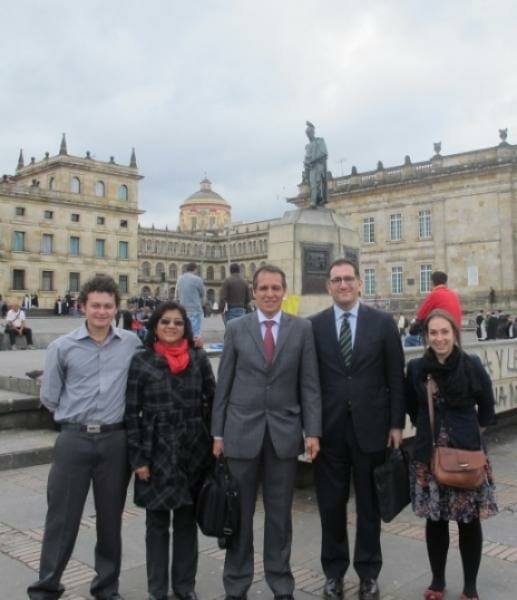TUESDAY, JUNE 3, 2014
The meeting was inaugurated on Monday morning, 2 June, with welcome remarks from Bonian Golmohammadi, Secretary-General of WFUNA, and a keynote speech by Acting Director General of the UN Office in Geneva, H.E. Mr. Michael Moller.
Mr. Moller insisted on the importance for the UN and the UN office in Geneva to gain more visibility and stressed the need for the UN agencies to promote success stories more effectively. He announced the recent launch of the International Geneva Perception Change Project. This is an effort that aims to boost the importance and impact of international cooperation coordinated in Geneva. He encouraged the UNAs to take an active part in bringing the work of the UN to the fore. The 70th anniversary of the UN next year would be a great occasion to improve the visibility of the UN and the UNAs.
Carolina Rodriguez, Head of International Geneva Perception Change Project, told the audience more about this project. Their strategy is based on specific pillars such as increasing media outreach and academic interest in the UN, and developing show business around UN themes and fields of action. During the Q&A session, participants insisted on the crucial importance of effective flows of information and communication; several participants suggested that stakeholders share information with the national UNAs.
Charlotte Warakaulle, Chief of Section, Political Affairs and Partnerships Section at UNOG, talked about the UN family in Geneva, the numerous partnerships and collaborations in this highly international platform and the impact of its work in our daily lives. With almost 10,000 UN staff based in Geneva today, the city contributes substantially to the realization of the United Nations’s goals and objectives.
Adam Rogers, Senior Advisor and Head of Unit at UNDP Geneva, talked about the MDGs and the post-2015 agenda. He stressed the importance of referring to history and to the previous decisions taken by States and institutions. Mr. Rogers reviewed the main themes of the post-2015 agenda: Sustainable Development; Education; Peacebuilding and Climate Change. He concluded by stressing the importance for the youth to follow and encourage the governments to achieve these goals.
Craig Mokhiber, Chief of Development and Economic and Social Issues branch, Research and Right to Development division at OHCHR, insisted on the fact that OHCHR was disappointed by the MDGs report. The main critics show the MDGs as preambles and insist on the fact that the goals are too general. He stressed the key importance of this preparation time for the elaboration of the post-2015 agenda.
Meg Jones, Senior Officer Millennium Development Goals Division at the International Trade Center (ITC), ended the first day. ITC’s main mission is to concretely work with policy makers in order to assist local small medium enterprises to develop and contribute meaningfully to national economies. Ms. Jones highlighted the benefits of empowering women in business.
On Tuesday morning, the participants to the training had the chance to meet stakeholders from civil society, government and UN agencies.
Florian Irminger from the Human Rights House Foundation presented his organization and tackled some of the challenges of UN Human Rights mechanisms. The ensuing discussion with participants added further details on the Universal Periodic Review mechanism and its importance and effectiveness to monitor human rights situations, and how to ensure effective civil society engagement with UN human rights mechanisms.
H.E. Mr. Alexandre Fasel, Ambassador of Switzerland to the UN, gave a presentation on the Swiss priorities in Geneva and more generally Swiss foreign policy. He underlined the similarities between the Swiss federal constitution and the UN charter. He stressed that International Geneva is an important part of the Swiss contribution to international cooperation. Switzerland aims to offer a premium location for global governance and is proud of its competitiveness and success in that regard. He expressed his perception of WFUNA as a guardian of the integrity of the UN system. The general approach of the organization allows it to have a broader view on the whole system. The floor was then opened and UNA members added their expertise in various sectors such as peace and security or food.
The last intervention was focused on the dramatic situation in South Sudan, with Mr. Joseph Bonsu, Human Rights Officer at OHCHR and Mr. Farhad Movahed, Humanitarian Affairs Officer, from OCHA. They started their presentation with a short video explaining the dire situation being faced by populations in the country. The main aim of OCHA and OHCHR on the field is to prevent loss of life, to secure access to food, to allow people to farm and plant crops in order to assure sustainability. The upcoming Rights Up Front Action Plan, introduced by the Secretary General last year, is intended to help UN agencies to strengthen the UN’s role in protecting people in crisis.
In the afternoon of the second day, the group divided into three groups to discuss the following thematic discussions:
- The Post-2015 Development Agenda and Human Rights
- The Post-2015 Development Agenda and Freedom from Violence
- UN Security Council Veto on atrocity crimes


